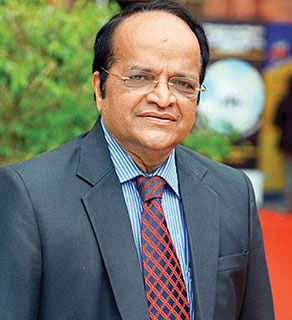
 Even after 68 years of independence, India is yet to achieve complete literacy, possibly because the Indian education system still reeks of command and control of yesteryears, with students reduced to being shadows of passive knowledge receivers. But as the country heads for a digital tomorrow riding the ‘Digital India’ wave, it is time to set right all that has plagued the education system for decades.
Even after 68 years of independence, India is yet to achieve complete literacy, possibly because the Indian education system still reeks of command and control of yesteryears, with students reduced to being shadows of passive knowledge receivers. But as the country heads for a digital tomorrow riding the ‘Digital India’ wave, it is time to set right all that has plagued the education system for decades.
Higher education in India is witnessing change at several levels. This assumes importance as India is home to about 600 million people under the age of 25 years. Needless to say, the existing system is not capable of dealing with the pressure and is in urgent need of expansion. The country’s young population has an immense appetite for education and with the rising middle class; an increasing number of this young populace is now ready to pay for it. Apart from the demographic dividend, India will also have the second largest number of graduates by 2020 – just behind China and surely ahead of the USA. The Organisation for Economic Cooperation and Development (OECD) predicts that in 2020, 200 million of the world’s 25-34-year-olds will be university graduates and 40 per cent of these will be from China and India, representing a huge portion of the global talent pool.
As part of the plan to revamp higher education, the government has decided to overhaul its several aspects in the next five years. Prominent among these are quality assurance, international collaborations and new teaching methods. However, it remains to be seen how these plans translate into ground realities. One clear cut direction comes from the ambitious programme, ’Digital India’, launched by Prime Minister Narendra Modi recently, that promises to transform India into a connected knowledge economy offering world class services at the click of a mouse. Technology and its use have swept all sectors off its feet with education being no exception. In today’s time and age, educational institutions need to concentrate more on quality of education.
From 20 universities and 500 colleges at the time of independence, higher education has panned out into a large system. In a scenario where expansion is rapid and keeping pace with global changes difficult, there is a need to deliberate upon and address the concerns.
Experts have been calling for a new direction to the sector to rejuvenate the education system and help India adapt to global educational challenges. Feeling the pulse of time, the new government is planning to set up an education commission to draft a new education policy. A new policy becomes crucial also because of several changes the Indian society has undergone since the last NEP in 1986 (later modified in 1992). Incidentally, India has been at the crossroads amid waves of liberalisation, privatisation and globalisation, besides democratisation of technology through mobile phones and the Internet. The new education policy would require looking at the needs, challenges and solutions in light of changing realities.
As new initiatives with global benchmarks are undertaken to meet the expectations of a rising India, it is worthwhile to recall what Noble Laureate Albert Einstein wrote. “Education is what remains after one has forgotten everything one learned in school.” He should know.






















